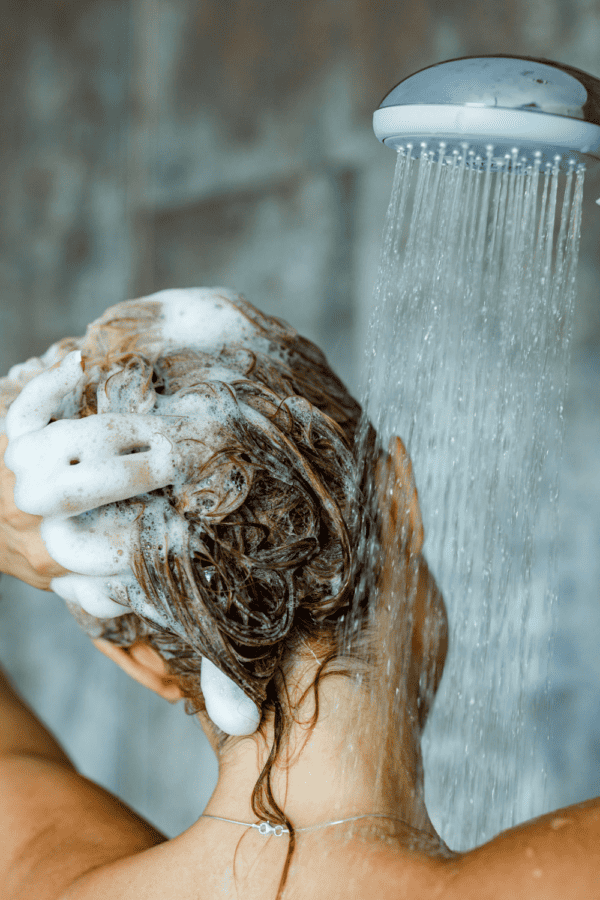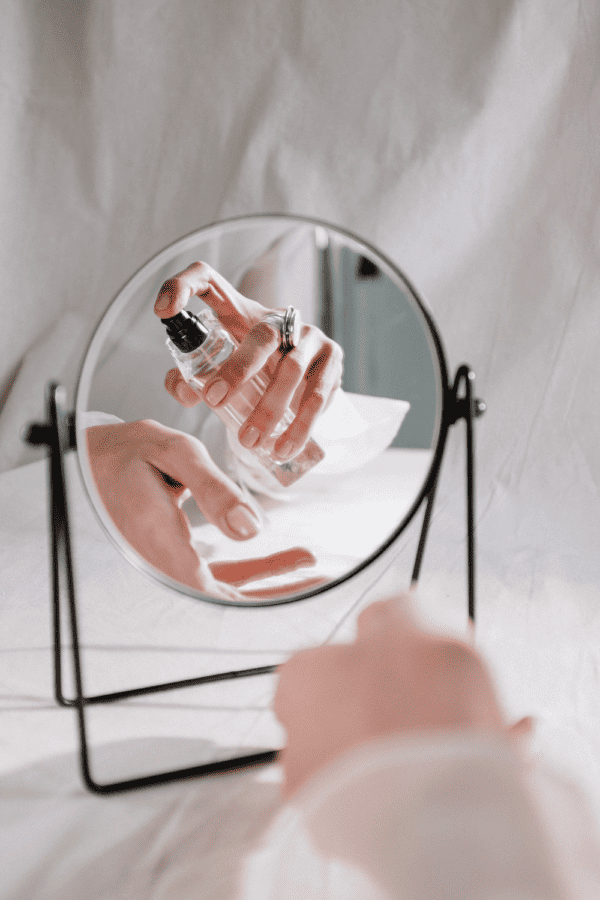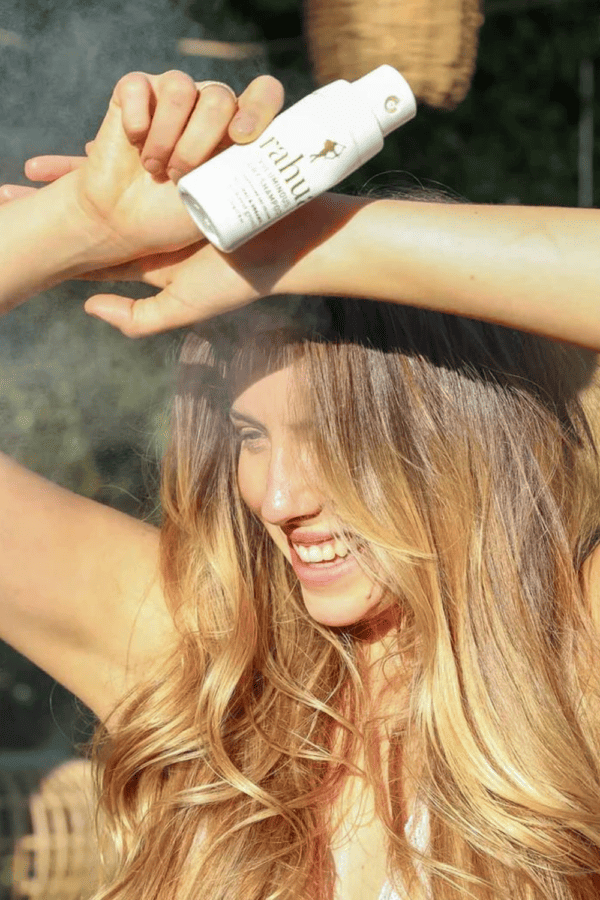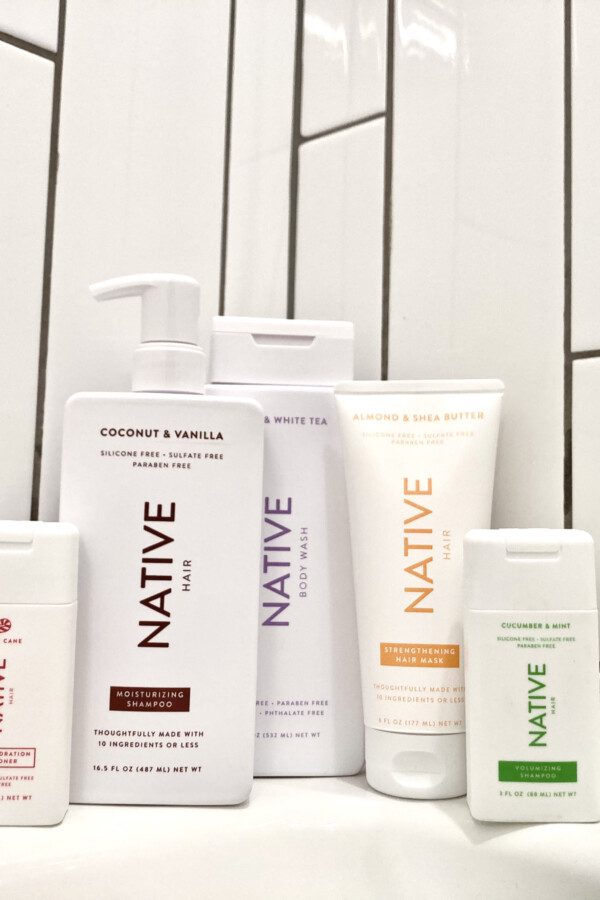IN A NUTSHELL:
- Toxic PFAS are often added to products to make them non-stick. (We recently discovered that many clothing irons contain PFAS coatings!)
- Because of the fact that hair is meant to glide through or off of curling irons and hair straighteners, it’s reasonable to think they may be covered with a non-stick PFAS coating… So we looked into it!
- Fortunately, we found several brands that make PFAS-free hair styling tools, including:
- See below for more info!
If you’re like most women, you do everything possible to avoid bad-hair days. A messed up ‘do may definitely ruin your entire day and put you in a sour mood. Been there, done that!
For most people, keeping your locks picture-perfect often means applying heat with a curling iron or straightener to rein in those stubborn wisps that will never stay exactly where you want them.
But have you ever wondered if prolonged use of these hair appliances at high temperatures is safe?
Unfortunately, the heat could trigger the release of certain appliance coatings which are hazardous to your health and to the environment. So, it’s critical that you know if such substances have been applied to your curling iron or straightener.
The chemical culprits in these coatings are called per- and polyfluoroalkyl substances, aka PFAS.
Knowing whether these “forever chemicals” are present or not requires a bit of sleuthing on your part because companies don’t often share this information. Although it’s not illegal to use PFAS on hair appliances, they are far from healthy. The safest hair curling irons and flat irons are PFAS-free.
In this article, I save you the trouble of having to research the best PFAS-free hair curling irons and straighteners. Here you’ll find information on over 10 popular brands that I thoroughly investigated. Based on company responses to my questions, I list my top recommendations below.
Table of Contents
- What are PFAS?
- Why Are PFAS Bad For You?
- Are PFAS Regulated?
- Other Carcinogens and Endocrine-Disrupting Substances in Chemical Hair Straightening and Hair Relaxer Products
- What is the Danger from PFAS in Hair Curling Irons and Stylers?
- Best PFAS-Free Hair Curling Irons and Straighteners
- Final Thoughts on PFAS-Free Hair Curling Irons and Straighteners
This article is not sponsored, nor were the products gifted. This article does contain affiliate links, which means we may earn a commission if you decide to make a purchase Featured image credit: Bio Ionic.
What are PFAS?
Currently numbering roughly 14,000 and counting, per- and polyfluoroalkyl substances (PFAS) are industrial chemicals that date back to the 1930s. Because they are practically indestructible under ambient conditions, PFAS are called “forever chemicals.”
Largely unregulated, PFAS are widely used as stain repellants. Water and oil bounce off of them, making them ideal for many commercial applications. Another desirable characteristic of PFAS is that they are stable in heat up to approximately 350℉ as I explained in my article on PFAS-free clothes irons and steamers.
Why Are PFAS Bad For You?
There are innumerable reasons why PFAS are bad for you, and more are discovered all the time. You will find an extensive list— with recent links highlighting the latest research—in the article I just mentioned.
Since I wrote that article just a couple of weeks ago, I read a newly-published article on yet another serious health problem (autoimmunity) related to PFAS exposure, making that list even longer.
These chemicals may enter your body through skin contact, ingestion, or inhalation. Just a tiny amount may cause considerable and long-lasting damage.
There is only one undeniable takeaway: to protect yourself and your family, eliminate PFAS as much as humanly possible from your home and life.
Choosing common beauty products and tools—like PFAS-free hair curling irons and straighteners—is one practical place to begin.
Are PFAS Regulated?
Unfortunately, there is no federal regulation of PFAS on non-food products in the United States. In 2023, Minnesota’s governor signed the first-in-the-nation ban on intentionally-added PFAS in select goods including:
- Dental floss
- Feminine hygiene items
- Cleaning products
- Cookware
You can make your voice heard. Contact your favorite companies and demand safe products made without PFAS. A few companies—such as KEEN and Fjallraven—are stepping up and phasing them out in some products, but that’s not enough to create a PFAS-free world.
Other Carcinogens and Endocrine-Disrupting Substances in Chemical Hair Straightening and Hair Relaxer Products
Besides PFAS in hair curling and flat irons, there are several other toxic chemicals in common hair straightening and hair relaxing products that could cause major health issues.
Maybe you’re aware of the lawsuits by people who have been harmed by them (which includes a disproportionate number of Black women).
In December 2023, investigators published the results of a 25-year study following roughly 45,000 Black women who regularly used chemical hair relaxer and straightening products.
The study found that “…long-term use of chemical hair relaxers was associated with increased risk of uterine cancer among postmenopausal women, but not among premenopausal women.”
Another recent study showed a 31% increased risk of breast cancer among women who used these products regularly.
Since beauty shouldn’t kill you, it’s important to be aware of the potential hazards. Carcinogens (cancer-causing substances) and endocrine disruptors (hormone-altering substances) top the list of the worst chemicals associated with adverse health effects found in hair relaxers and hair straightening products.
They include:
- Formaldehyde and formaldehyde-releasers
- Parabens
- Phthalates
- Cyclosiloxanes
- Diethanolamine
- Triclosan
- Guanidine carbonate
- Ammonium thioglycolate
- Dimethyl sulfoxide
What is the Danger from PFAS in Hair Curling Irons and Stylers?
During research for this article, I discovered that hair curling irons and flat irons have widely varying temperature ranges, usually from approximately 200℉ up to 450℉.
Because they are not precision scientific instruments, it is safe to assume that the setting you use could be 10-15℉ higher or lower than what the indicator is pointing to or what the digital display reads.
Since 350℉ is the generally recognized temperature (although a conservative estimate) at which PFAS could break loose from an appliance coating, I personally would not go over 300℉.
If there are scratches or nicks in the surface of the wand, PFAS subject to heat could more readily migrate off the appliance into your hair.
Touching your PFAS-contaminated hair with your hand gives the forever chemicals a pathway into your body through skin absorption. Some types of PFAS can also vaporize, which means you could breathe them in.
Best PFAS-Free Hair Curling Irons and Straighteners
I’m happy to say that only one hair curling iron out of all the models sold by the 10 popular brands I looked into is coated with PFAS, according to email replies.
However, two companies did not directly answer my questions, so I remain skeptical. I would not purchase their products since there are alternatives that are PFAS-free. Here you’ll find out the results of my investigation into PFAS-free hair curling irons and stylers.
As you know, hair curling irons and flat irons perform better when they move through hair effortlessly, not causing any tangles. Because PFAS would increase the likelihood that these hair tools would succeed at this, it’s plausible that they’d be present.
So, you may justifiably wonder if a PFAS coating had been applied during manufacturing. I’ll be keeping a careful watch on these products. If new PFAS-free hair curling irons and stylers enter the market, I’ll update this article.
Bio Ionic
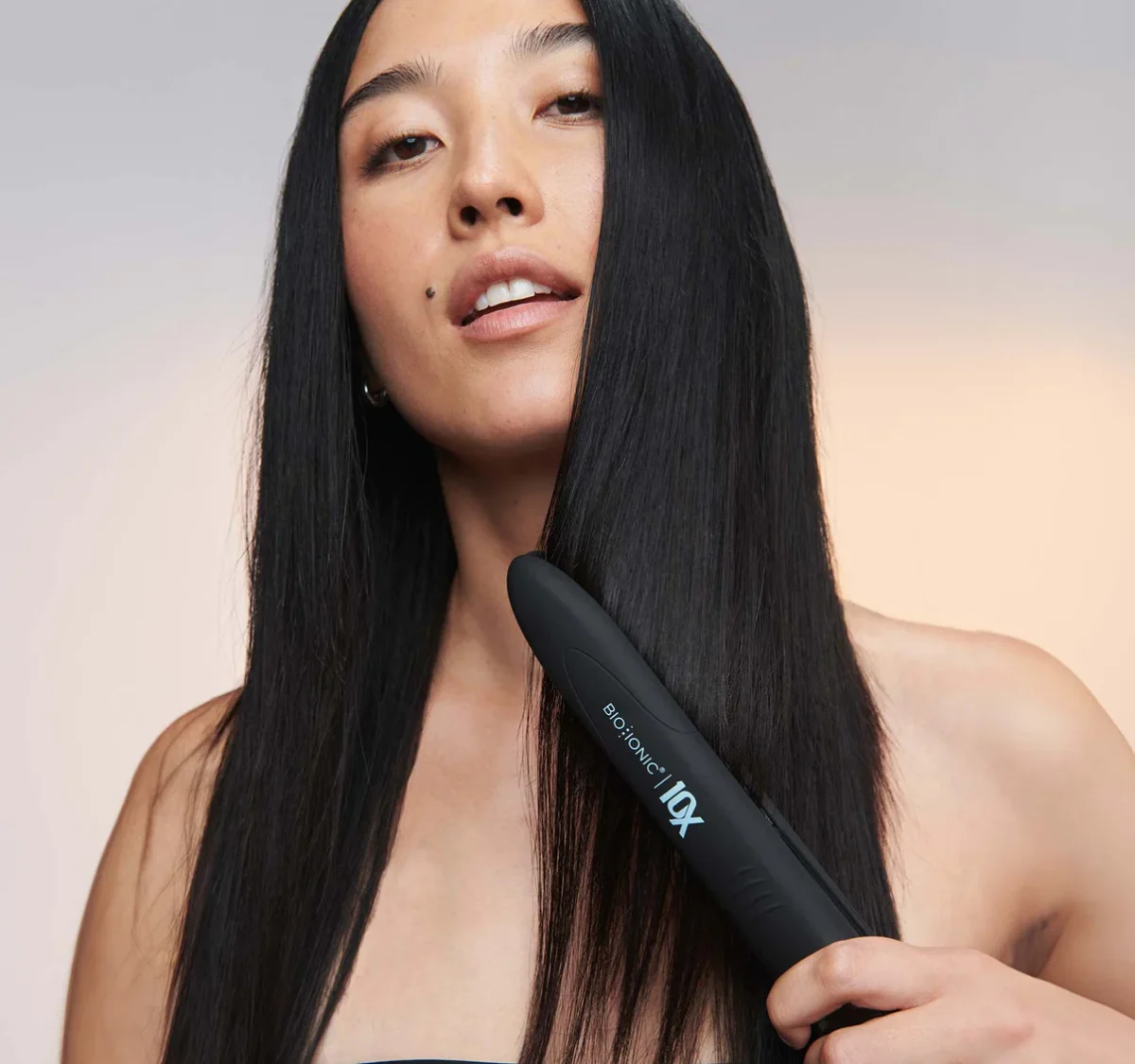

The first reply from Bio Ionic was to inform me that they were checking with their production team. A few days later, a company rep said “We confirmed with our production team that there is no coating of PFAS chemicals on the tools.”
Because the customer service department wasn’t sure and looked for an authoritative source for this information at their company, I’m more confident in their answer than those from companies who give me the impression they don’t know and haven’t made any effort to find out.
Carries: Flat irons and straighteners, curling irons and wands, hair dryers
Price Range: $99-$239
L’ange
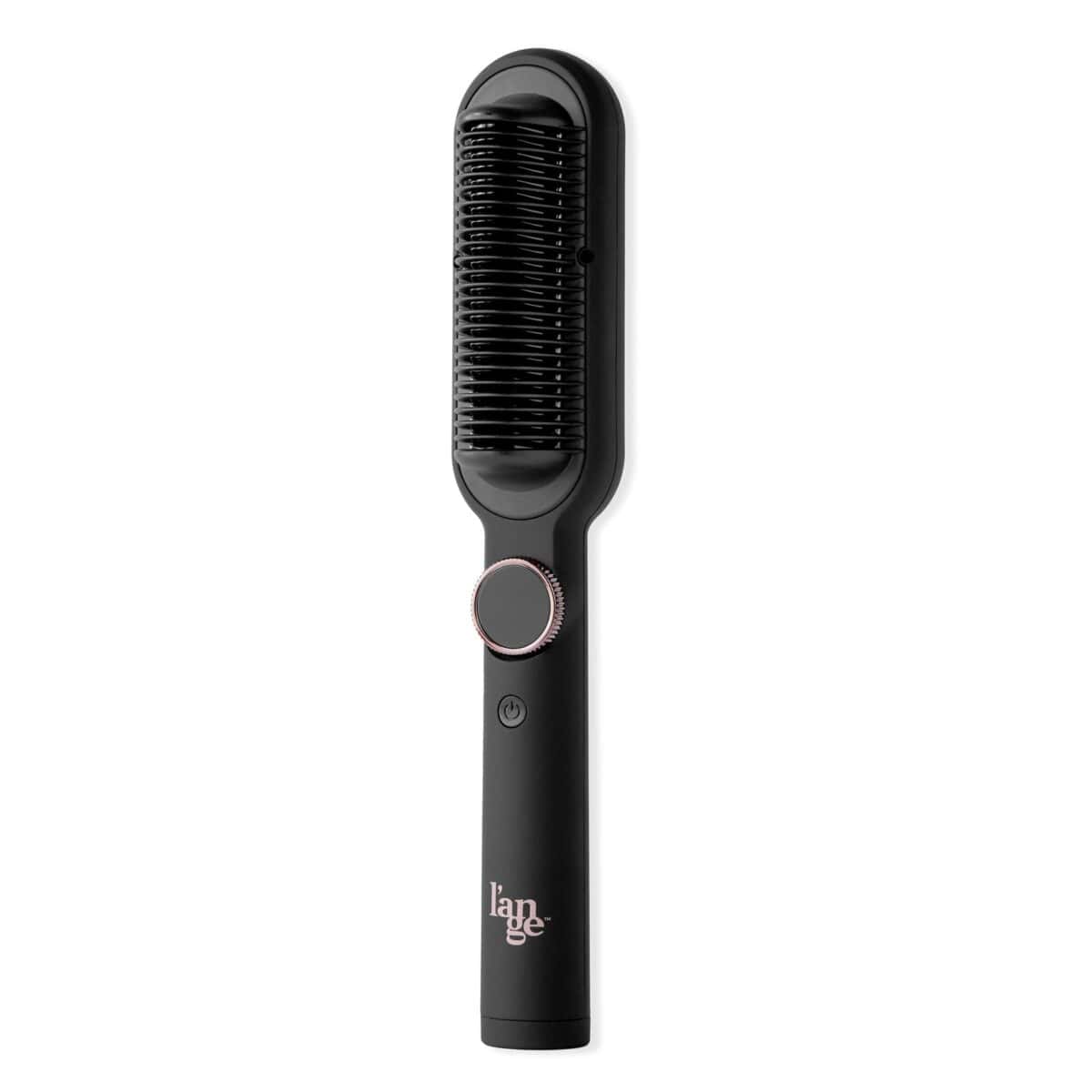
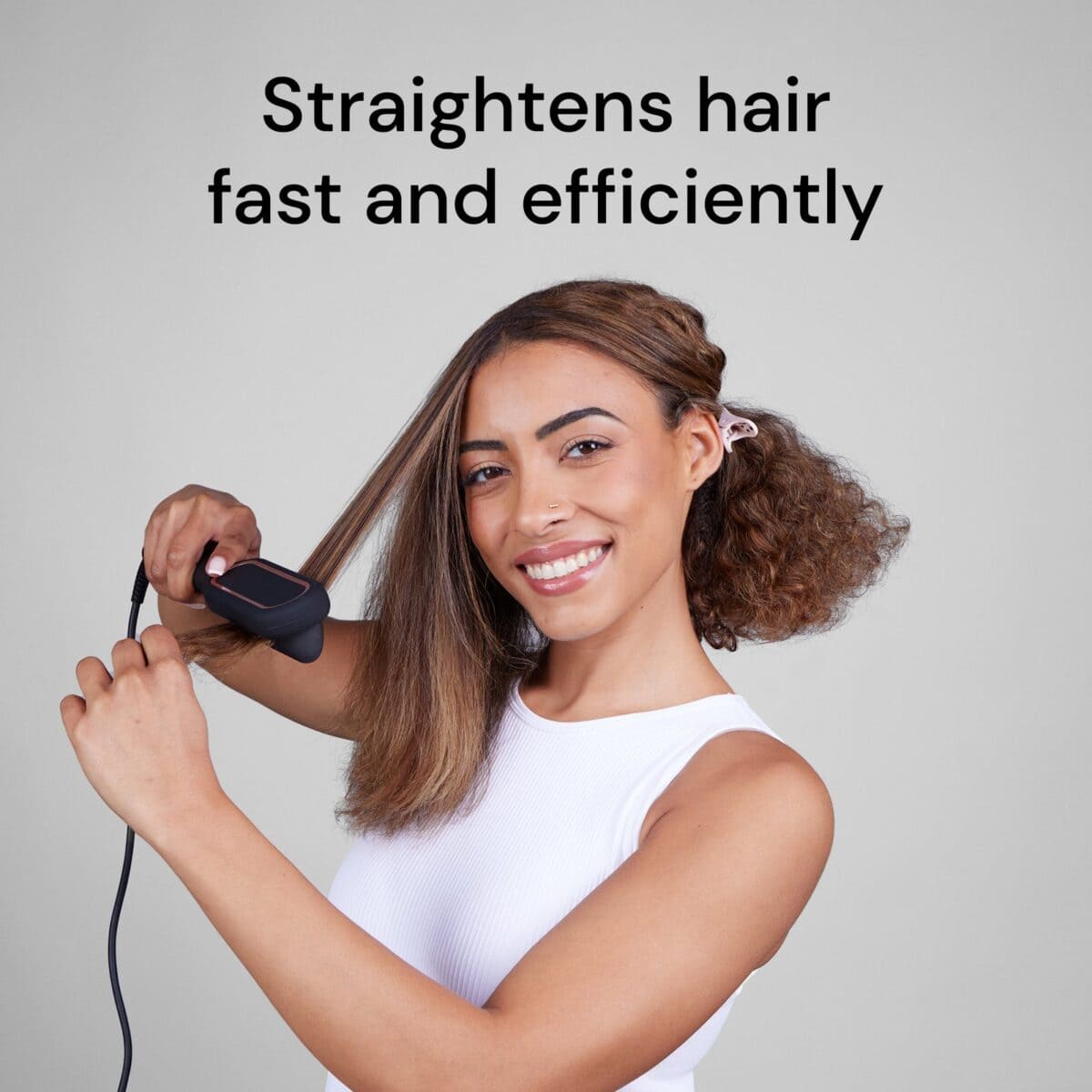
I received an email response from L’ange stating “Our tools do not have PFAS chemicals on them.”
Carries: Flat irons, curling wands, waving tools, hot brushes, hair dryers
Price Range: $59-$279
NuMe
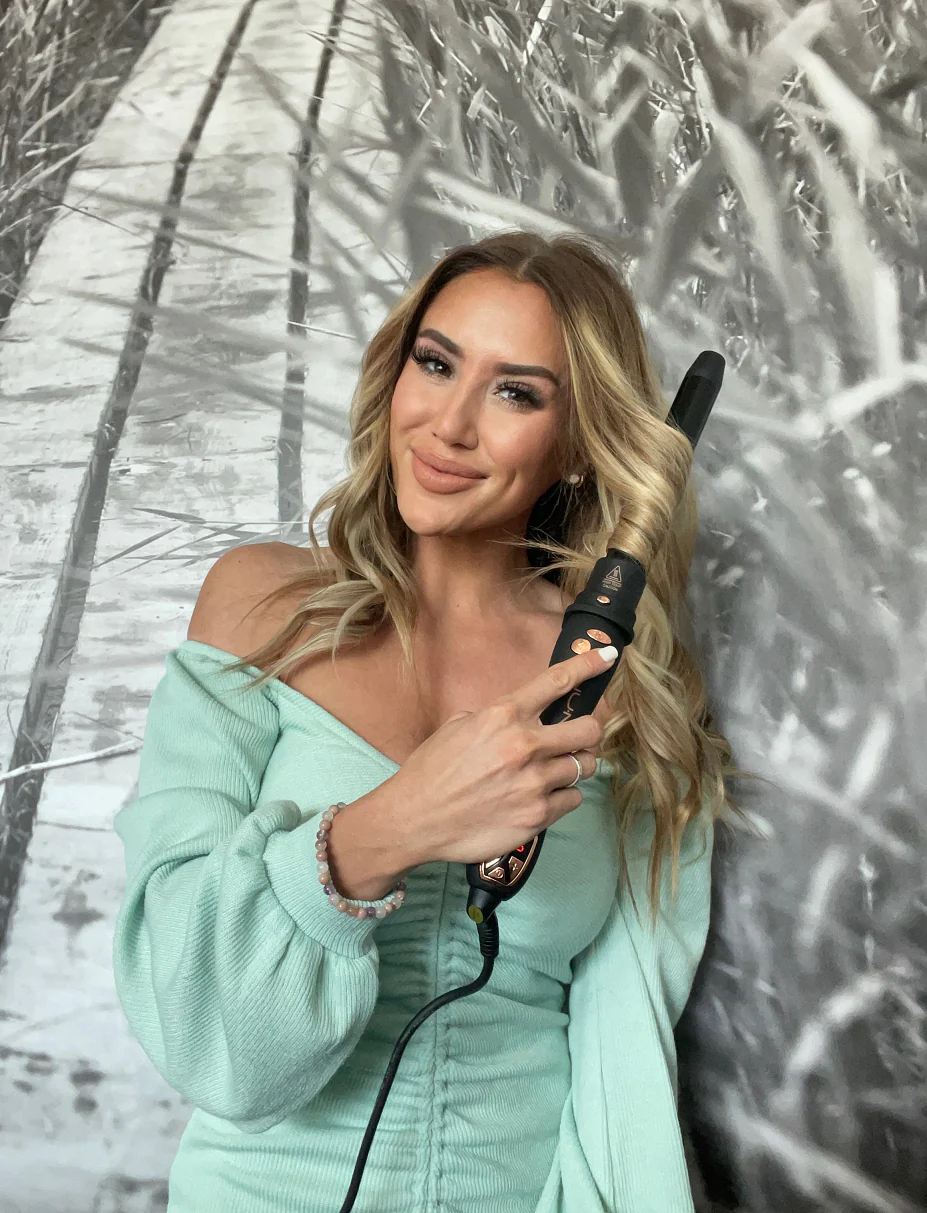
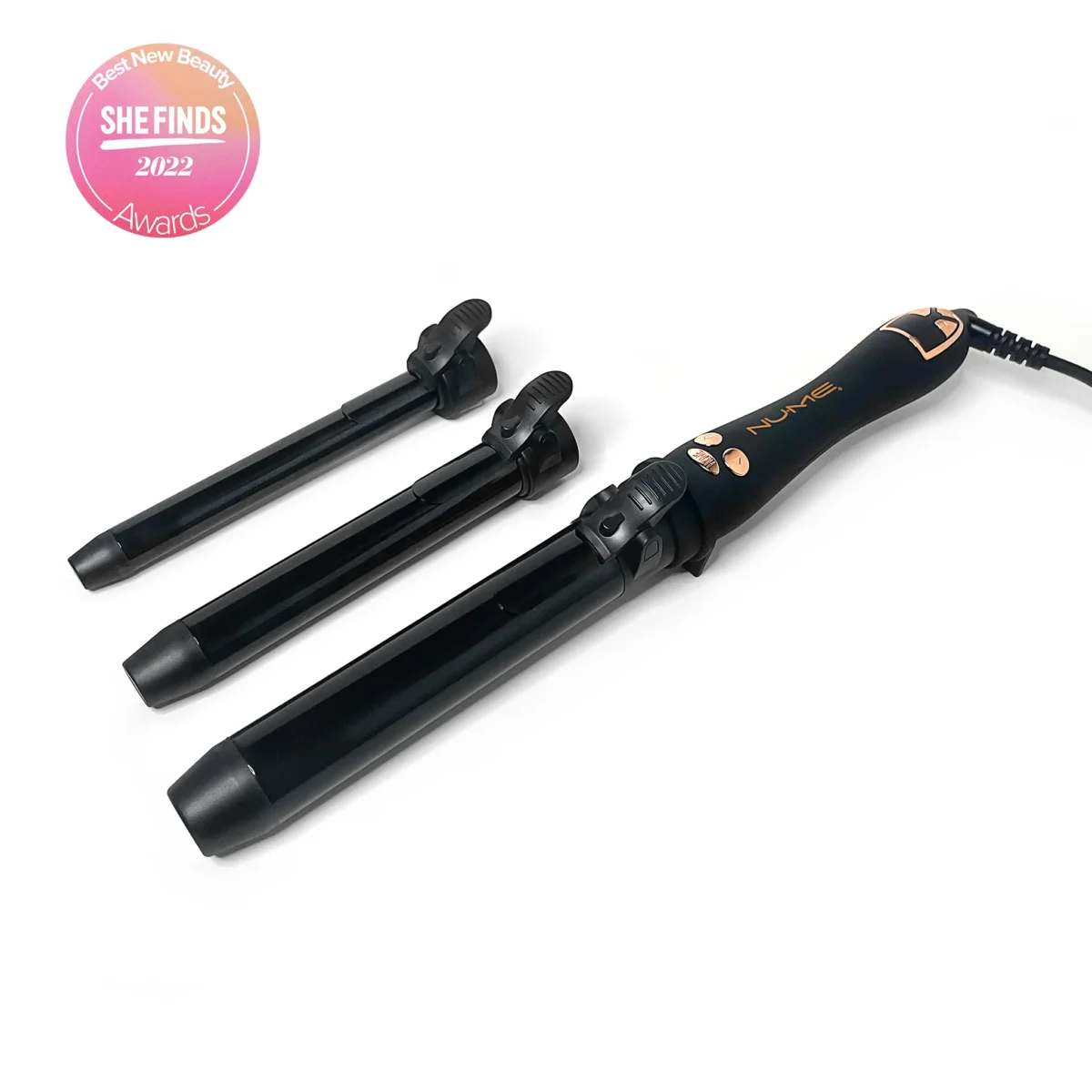
NuMe reported on live chat that “Our barrels are tourmaline ceramic and we don’t have any chemical coating in it.” When I repeated my question about PFAS, the company rep said “No PFAS on our barrels.”
Carries: Straighteners, curling wands, hair dryers, mini tools
Price Range: $55-$199
Dyson


An email from Dyson said that there “is no coating of any chemicals over the Dyson machines.”
Carries: Customized multi-stylers, hair straighteners, stylers, hair dryers, wet-to-dry straighteners
Price Range: $429-$600
Paul Mitchell


A Paul Mitchell company rep stated that “Our curling irons and all our other styling tools do not have PFAS chemicals.”
Carries: Flat irons, curling irons, hair dryers,
Price Range: $75-$141
Chi
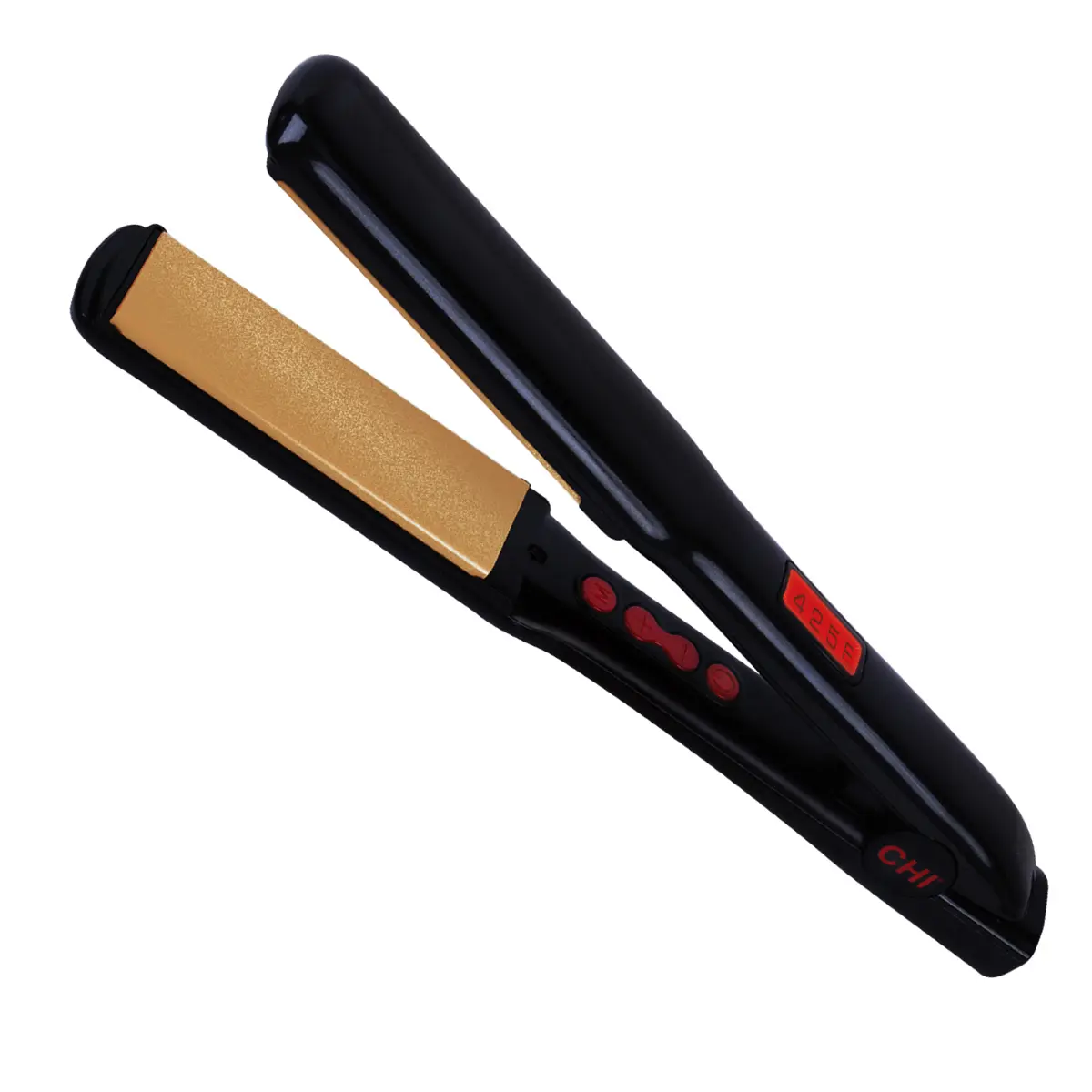

A representative from Chi said “all of our tools are free from PFAS, Teflon, BPA, PTFE, or PFOA with the exception of our Ellipse wand. Our CHI Ellipse Wand (Model:GF7109) is made with a Teflon barrel.”
Carries: Flat irons, curling irons and wands,
Price Range: $63-$243
Conair
In response to my email about PFAS coatings, a Conair rep said “We do not use Teflon/PTFE or PFOA in our products.” When I followed up by saying that there are roughly 14,000 types of PFAS and I wanted to know if they use any of them, the rep again replied that “We do not use Teflon/PTFE or PFOA in our dryers, curling irons or flat irons.”
Then I replied by stating their response is repetitive and did not answer my question about the 14,000 other types of PFAS. They emailed an apology and stated that they were working on my inquiry and would reply as soon as possible.
Two days later, they emailed “Normal coatings are Ceramic or Tourmaline.”
As a consumer researcher, I’m not confident that Conair has thoroughly answered my question. If I receive a more convincing reply, I’ll update it here.
Beachwaver Co.
The initial response from Beachwaver to my inquiry was a standard reply that did not even refer to PFAS. It simply directed to a website page that lists chemicals not used in their products.
Since PFAS did not appear on that page, I followed up with a question: “Since PFAS are not listed on the page you referred me to, may I assume that PFAS are present?”
A company rep then replied that “After checking further here, we can’t find PFAS in our items/product so I can confirm that we don’t have a coating of PFAS.”
In my opinion, this entire exchange is not definitive enough. It seems they don’t know what PFAS are, and didn’t seek out a definitive answer from their suppliers.
So, I would not use one of their products unless or until I receive a more definitive reply.
T3 Micro
I have not received any response from this company. If I do, I’ll update this article.
BaByliss
After two weeks of waiting, I haven’t received a reply. If I do, I’ll post it here.
Final Thoughts on PFAS-Free Hair Curling Irons and Straighteners
Because PFAS are so common in all types of consumer products, they may show up in places you may not expect them—such as hair curling irons and stylers.
Since it’s a fact that they may be in clothes irons and steamers as I showed in a previous article, there’s a good chance they’d turn up in similar appliances for hair.
Fortunately, after an investigation of 10 major brands, I located only one company that told me they apply a PFAS coating on only one of their products (the Chi Ellipse Wand). Two other companies did not appear convincing in their replies, so I cannot recommend their products as PFAS-free until I receive greater assurance.
If I happen across another hair curling iron or steamer that does contain PFAS, I’ll update this article.

